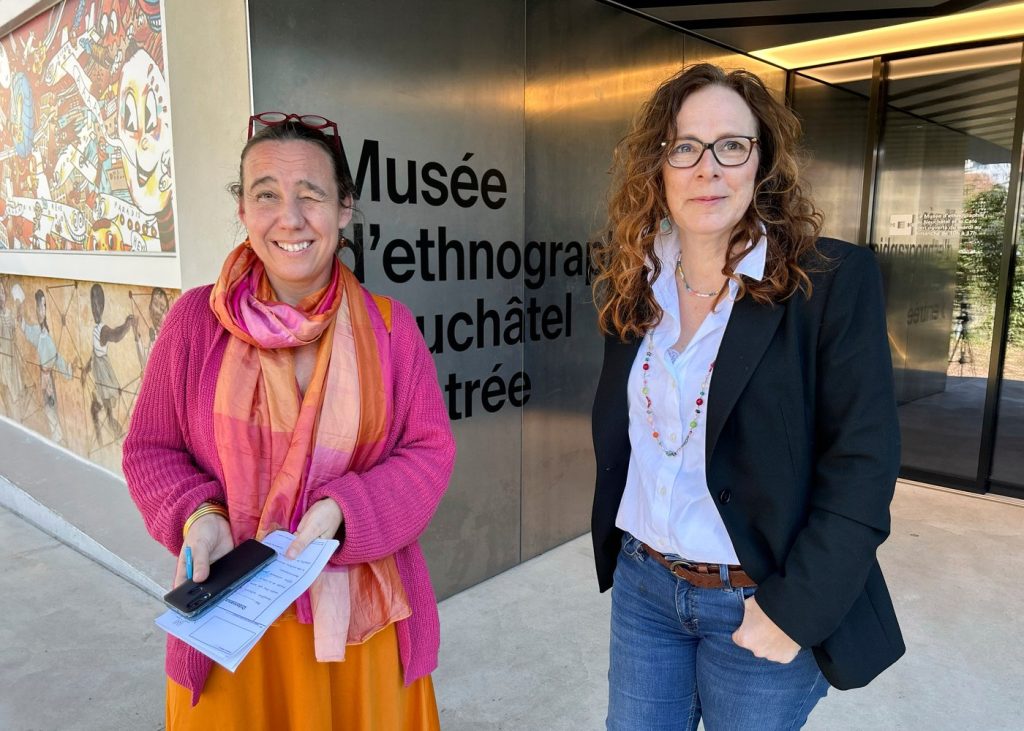NEUCHATEL, Switzerland (AP) – Residents of Neuchâtel, a picturesque town in Switzerland, now have a unique opportunity for medical treatment that transcends traditional healthcare. They can receive "museum prescriptions," allowing patients to explore the town's four museums as part of their healing journey, all covered by local authorities under a new two-year pilot project. This initiative aims to promote mental well-being by encouraging engagement with the arts, tapping into findings from a 2019 World Health Organization report that highlighted the positive effects of the arts on mental health and cognitive function.
Under this innovative program, healthcare providers in Neuchâtel can issue prescriptions for museum visits to patients who may benefit from such experiences. Research has shown that exposure to art can alleviate stress, help in the recovery from trauma, and potentially reduce the risk of cognitive decline. The initiative also promotes physical activity, as museum visits involve walking and standing, adding another layer of health benefit to the experience.
Julie Courcier Delafontaine, a member of the Neuchâtel council, acknowledged that the COVID-19 pandemic played a significant role in the program’s inception. During the lockdowns, many residents realized the importance of cultural sites for their emotional well-being. So far, around 500 prescriptions have been distributed by healthcare providers in the region, and the total cost of the program is modest, with a budget of 10,000 Swiss francs (approximately $11,300).
If the museum prescriptions prove to be beneficial, local officials are considering expanding the program to include various other forms of artistic activities, such as theater or dance. While the Swiss national healthcare system currently does not recognize cultural experiences as therapeutic interventions, there is hope that positive outcomes from the pilot could change this perspective in the future.
Marianne de Reynier Nevsky, the cultural mediation manager who helped develop the program, highlighted its adaptability and inclusivity. Individuals suffering from conditions like depression, chronic illnesses, or mobility issues may find particular benefit in this project. As part of this initiative, healthcare practitioners like Dr. Marc-Olivier Sauvain, head of surgery at the Neuchâtel Hospital Network, have already begun prescribing museum visits to patients preparing for surgery. His effort aims to motivate patients who may have become sedentary to engage with their surroundings more actively.
Dr. Sauvain expressed his belief that allowing patients to engage with cultural experiences instead of traditional medicine could be more appealing and effective in promoting physical and mental health. He remarked on the joy of prescribing museum visits, stating, "It's a medical order that instructs you to go visit one of our nice city museums." This approach contrasts sharply with the typical prescriptions of medications or tests that patients often view unfavorably.
The program has garnered positive feedback from both the participants and the cultural community. Carla Fragniere Filliger, a retired teacher and poet, praised the initiative during a visit to the ethnography museum, suggesting that similar prescriptions should be implemented worldwide.
The "museum prescription" program in Neuchâtel represents an innovative intersection of art and health care, promoting both cultural engagement and physical activity. A successful outcome could pave the way for broader acceptance of art as a viable component of patient care in Switzerland and beyond.










